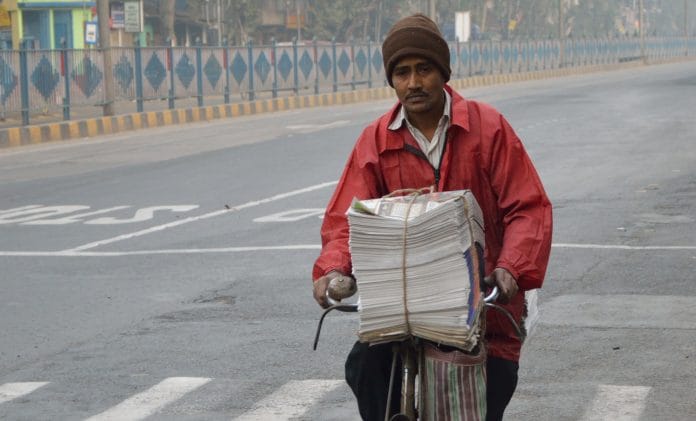New Delhi: Several media bodies and industry associations have come out against what they describe as the Telecom Regulatory Authority of India’s (TRAI’s) attempts to check cross-media ownership. They have accused TRAI of attempting to encroach on the media sector and pointed to the “futility” of new regulations in light of existing safeguards.
In April, TRAI released a consultation paper — ‘Issues related to media ownership’ — which broadly discussed ownership-related issues within the media and the surge in dominance of a handful of companies. It had sought written comments, if any, from stakeholders by 10 May, and counter-comments by 24 May.
In particular, TRAI said that cross-media ownership had resulted in a monopolistic market. The paper also stated that the media had changed in the last few years — not just in terms of consumption, but also from the standpoint of ownership — and suggested a regulatory body for checking market monopoly.
Among those who submitted their responses to the paper were the India Broadcasting and Digital foundation, Association of Radio Operators for India (AROI), the Indian Newspaper Society (INS), the National Association of Software and Services Companies (NASSCOM), and the News Broadcasters & Digital Association (NBDA).
Many of the stakeholders, including the US-India Strategic Partnership Forum, argued that an additional framework was not needed since there were regulators like the Securities and Exchange Board of India (SEBI) and the Competition Commission of India (CCI) that actively studied harmful competition patterns in the market.
“Given that such regulators have sufficient checks and balances in place to ensure accountability and transparency, we believe that cross-media ownership will not adversely impact viewpoint plurality and does not need to be monitored separately,” the forum wrote.
The AROI called the proposal “regressive”, saying it directly translates into “media control”. “Needless to mention that any regressive policy controlling media ownership would have a negative effect on the media space in the country and not only take away the gains made by the industry in recent decades but would also result in de-growth and contraction of the industry,” the association of Indian private commercial radio stations wrote, adding that the exercise was “totally unwarranted”.
ThePrint reached TRAI Chairman P.D. Vaghela for a comment through calls, text and email, but there was no response till the time of publishing this report.
Also Read: India’s media & entertainment industry to be worth Rs 4.3 lakh crore by 2026, says PwC report
‘TRAI’s jurisdiction unclear’
NASSCOM, the apex body for the IT industry, has questioned TRAI’s jurisdiction in suggesting an “additional regulatory framework” for media ownership.
“The paper raises two broad sets of concerns relating to ownership patterns in the media industry. It attempts to establish a causal link between market concentration and media plurality and seeks inputs on measuring both metrics and the need for an additional regulatory framework to address the same. With respect to the first set of concerns, however, we find the connection with TRAI’s jurisdiction to be unclear,” it wrote.
The Times Group, which owns several newspapers and broadcast channels, also asserted that there was no need for new regulations as the Press Council of India (PCI) regulated the media.
“TRAI has no authority or expertise to question the existing and well-rounded mechanism of regulation for the press, and any such action would be opposed. It is surprising that TRAI has not given any reference to PCI… Further, the paper questions self-regulation and its effectiveness which is highly irregular and may lead to the question of whether TRAI is trying to gain more regulatory power for itself, at the cost of media freedom,” it wrote.
The NBDA said the TRAI had done no extensive study to arrive at conclusive statements mentioned in the paper. “TRAI has also not undertaken any consumer study before undertaking this exercise. Further, in the consultation process, TRAI has proceeded with the same issues which were discussed in 2013 ignoring the fast changes in technology and more importantly consumer behaviour. It is very important that a comprehensive consumer study is done prior to this consultation,” it added.
The INS said the newspaper industry needs to focus more on surviving a fast-paced news environment first.
“Media companies, most importantly traditional media like print, TV and radio, must be allowed unfettered horizontal integration so that they can survive by owning different forms of media… as at present, most of them are in decline as can be observed by simply looking at TRAI’s statistics mentioned in the consultation paper,” the apex body of Indian newspapers said.
“Media companies must be protected against BigTech monopolies and abuse of dominance,” it added.
(Edited by Tony Rai)






